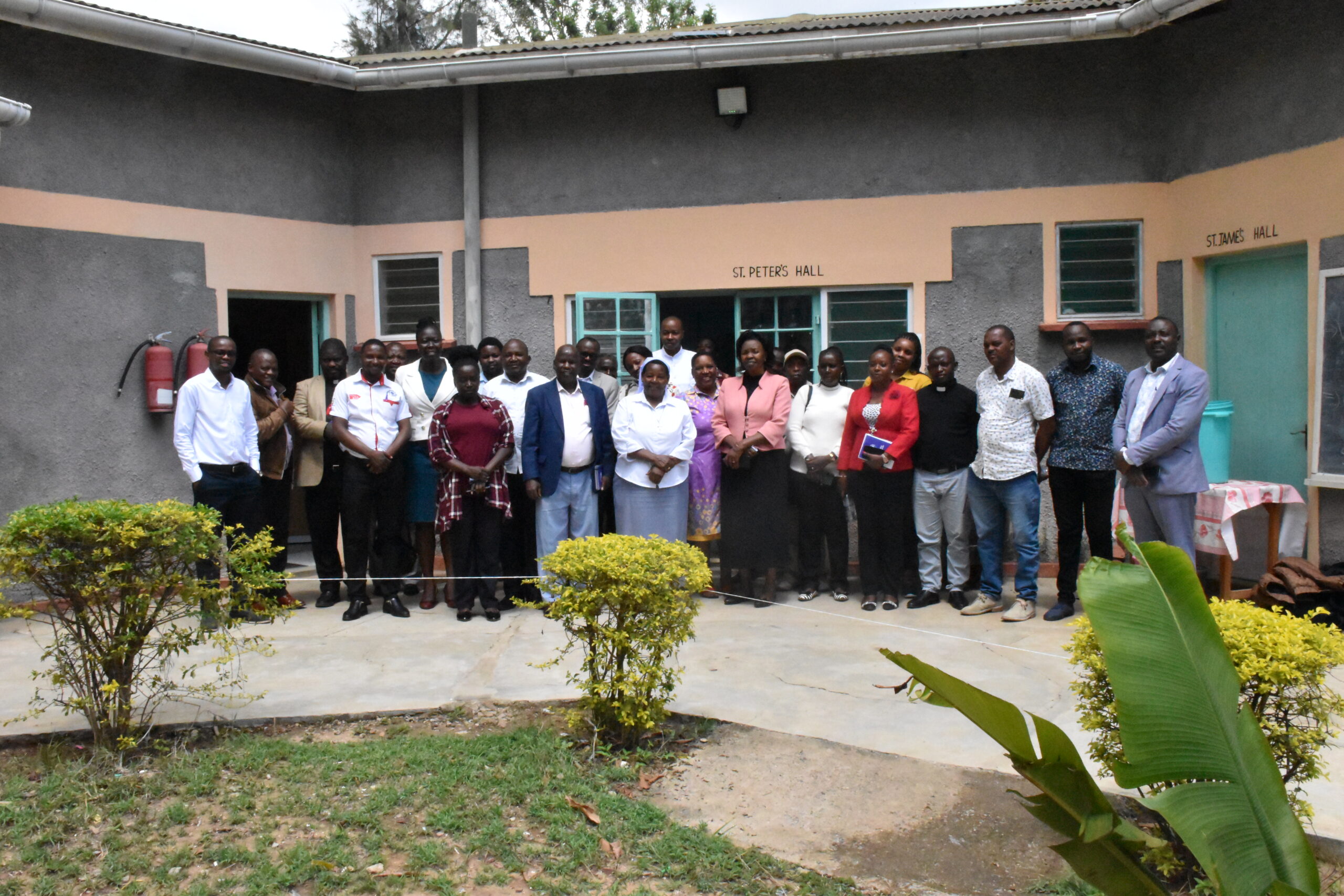
By Omboki Monayo
Nairobi, Kenya: On July 2, 2022, members of Restore Lake Victoria, an environmental conservation lobby group, swarmed across the shores of the largest freshwater lake in Africa.
They joined other partners including the Kenya Marine Fisheries Research Institute, the Dunga Ecotourism Team (DECTA), the National Environmental Management Authority (NEMA) and the Dunga Beach Management Unit (BMU) in collecting all the visible plastic waste in the lake and on the beachfront.
“We collected 199 kg of plastic, 26 kg of metal which was in the form of cans, as well as 34.5 kg of other wastes,” said Mr Adero.
He and other group members remain passionate about the need to keep plastics out of the lake because that will give its delicate ecosystem a fighting chance to survive and thrive.
“We must keep fighting to keep the lake free of single-use plastics. That is the only way to safeguard its survival as a food source, ecological treasure, and tourist attraction for future generations,” says the environmental campaigner who attended last year’s Conference of Parties or COP-27 conference in Sharm El Sheikh, Egypt.
Just one year later, the efforts being made by Adero and others could be jeopardized by the country’s move to once again provide a blank cheque for single-use plastics manufacturers.
With the planet marking World Environment Day on June 5, 2023, Kenya’s bid to roll back the ban on single-use plastics is set to kick off on June 15, 2023.

As other African countries mark milestones in the reduction of plastic pollution, Kenya has formally commenced its backward slide on the plastic menace through the inclusion of a clause in the 2023 Finance Bill that seeks to tax the local production of plastics.
The bill proposes the removal of locally manufactured plastics from the excise duty list as it imposes a duty on the imported “articles of plastic of tariff heading 3923.30.00 and 3923.90.90.”
On August 28, 2017, the country’s Environment Management Coordination Act that outlawed single-use plastic bags came into force. At the time, The Conversation reports that more than 100 million single-use plastic bags were distributed to shoppers every year.
The proposal to impose excise duty on imports which will be tabled before Parliament on June 15, 2023, will grant local manufacturers an opportunity to resume the production of single-use plastics.
Should it becomes law as proposed, the clause will lead to increased production of cheaper and more competitive local plastics that will create local jobs and grow the economy.
The increased production of cheaper plastics will however pile more pressure on an environment already choking with plastic waste despite long-running conservation efforts.
Kenya’s move has received support from the financial sector, with top accounting organization PricewaterhouseCoopers terming it a relief for local plastics manufacturers.
“The locally produced plastics will be competitive, affordable and will lead to an increase of its consumption. But this proposal goes against the government’s agenda of discouraging the use of plastics to reduce pollution,” PwC stated in its 2023 Finance Bill analysis.
UNEP’s press statement on this year’s World Environment Day notes that the Kenya Plastics Pact has also released new industry guidelines on recyclability for plastic packaging.
“The guidelines aim to provide clear recommendations to decision-makers on how to design plastic packaging to be compatible with future mechanical recycling infrastructure,” reads the statement.
On Monday, the 50th-anniversary celebrations focused on solutions to plastic pollution, with an official event in Abidjan, Côte d’Ivoire, with the support of the Netherlands.
There is a renewed focus on solutions to plastic pollution after the recent second round of negotiations on a global agreement to end plastic pollution in France.
To showcase the many innovative, community-driven solutions to reduce plastic pollution, hundreds of activities have been documented, ranging from beach clean-ups in Mumbai to cloth-bag sewing workshops in Ghana and zero-plastic-waste live concerts in Atlanta.
In his speech, UN Secretary-General António Guterres called for united efforts to eliminate the plastic menace, adding that it was only bound to get worse if nothing was done to address it.
“Plastic is made from fossil fuels – the more plastic we produce, the more fossil fuel we burn, and the worse we make the climate crisis. But we have solutions,” Gutierez said. “We must work as one – governments, companies, and consumers alike – to break our addiction to plastics, champion zero waste, and build a truly circular economy,” he added.
Africa has made significant steps in the fight to get rid the of single-use plastics challenge.
So far, 34 out of 54 states have either passed a law banning plastics and implemented it or have passed a law with the intention of implementation.
Speaking at the official event at Espace Latrille Events Deux Plateaux in Abidjan, Mr. Jean-Luc Assi, Côte d’Ivoire’s Minister of Environment and Sustainable Development, recalled his country’s progress on rolling back plastic pollution which kicked off with a ban 10 years ago.
“Côte d’Ivoire issued a decree in 2013 banning the production, import and marketing, possession, and use of plastic bags. It has supported businesses in switching to reusable and biodegradable packaging. The country’s largest city, Abidjan, has also become a hub for start-ups looking to beat plastic pollution. They are being encouraged. So let’s all be aware of the need to combat plastic pollution. Let’s act now and all say stop to plastic pollution,” said Assi.
In its press statement marking the day, Greenpeace Africa commended African nations that continue to take solid steps to combat the plastic menace.
“It is encouraging to see countries come together on this special day to take urgently needed actions towards a plastic-free future. This move shows that our governments are slowly recognizing the threat plastics pollution poses to life on this planet, to our ecosystems and the climate,” said Greenpeace Africa’s West Africa Regional Coordinator, Nono Prudence Wanko Djiodio.
“We hope this recognition will energize them to tighten their opposition to plastic production which is projected to rise significantly in the next decade,” she added.
Wanko commended countries such as Rwanda for adopting a bold stand against the proliferation of single-use plastics.
“We have seen countries such as Rwanda taking the lead in the quest to find a global binding instrument to deal with the plastic crisis and others like Morocco whose consumption of the raw material used in manufacturing plastic bags dropped by 50 percent since its plastic bag ban came into effect in 2015. We urge other African countries to join them in effective implementation of the existing plastic regulations,” Ms Wanko said.
Despite the progress so far made in efforts to reduce and eliminate single-use plastics, Greenpeace notes that “African steps are still heavy” when it comes to the implementation of the plastic ban regulations.
According to Greenpeace Communications and Story Manager Hellen Dena, a major reason for the slow progress is the determined push by proponents of single-use plastics for more plastic production and exportation into Africa.
To address the challenge, she is advocating for a firm stand by the African leadership against single-use plastics.
“This push for increased single-use plastic manufacture and usage could undermine progress made by countries to ban single-use plastic products and combat pollution. Africa’s leadership has the power to address these challenges and bring to an end this illegal and neo-colonialist way of dealing with waste once and for all,” says Ms Dena.
She is further urging African states to agree on a continental set of measures to eliminate single-use plastics.
“Plastic pollution is a global crisis and governments need to collaborate in a more coordinated approach to end this crisis through a legally binding agreement that will deal with the plastic pollution from production to disposal. Governments in Africa and around the world must recognize that this is a unique opportunity to stem the tide of this global crisis,” said the Greenpeace official.
“A Plastic free future is possible in Africa if governments resist the corporate capture by plastics proponents and take bold actions towards solving this crisis. Cooperation among governments across Africa and the world is critical in forging a strong global plastic treaty to finally turn off the plastic tap for the sake of our communities, our children, our climate, and our continent,” Djiodio.
The planet currently produces over 430 million tonnes of plastic annually. At least two-thirds of the plastic consists of short-lived products that soon turn into waste. Plastic pollution’s total cumulative social and economic costs range between USD300 to 600 billion per year.
A recent UNEP report dubbed Turning off the Tap, plastic estimates that pollution could decrease by 80 percent by 2040 if countries and companies use existing technologies and environmentally friendly policies to significantly revolutionize the industry.
According to UNEP executive director Inger Andersen, reducing plastic pollution is vital to secure planetary and human health.
“For the sake of the planet’s health, for the sake of our health, for the sake of our prosperity, we must end plastic pollution. This will take nothing less than a complete redesign of how we produce, use, recover and dispose of plastics and products that contain them,” said Andersen. “How the world produces, consumes, and disposes of plastic has created a disaster. But it is one we can end by turning off the tap on plastic pollution. On World Environment Day, I call on everybody to join the global movement. And help us beat plastic pollution, once and for all,” added the UNEP head.
So far, more than 50,000 people downloaded UNEP’s Beat Plastic Pollution Practical Guide.













